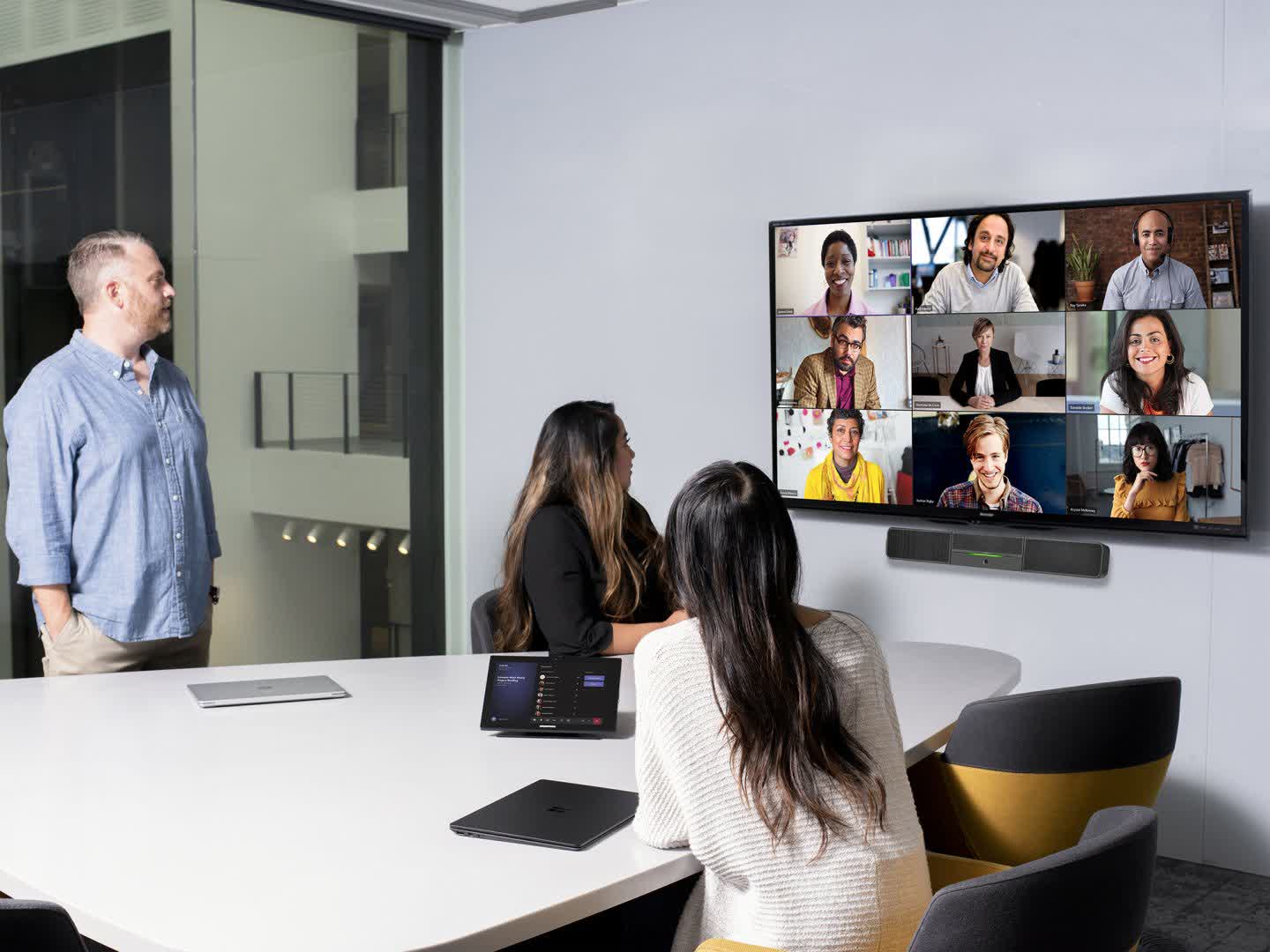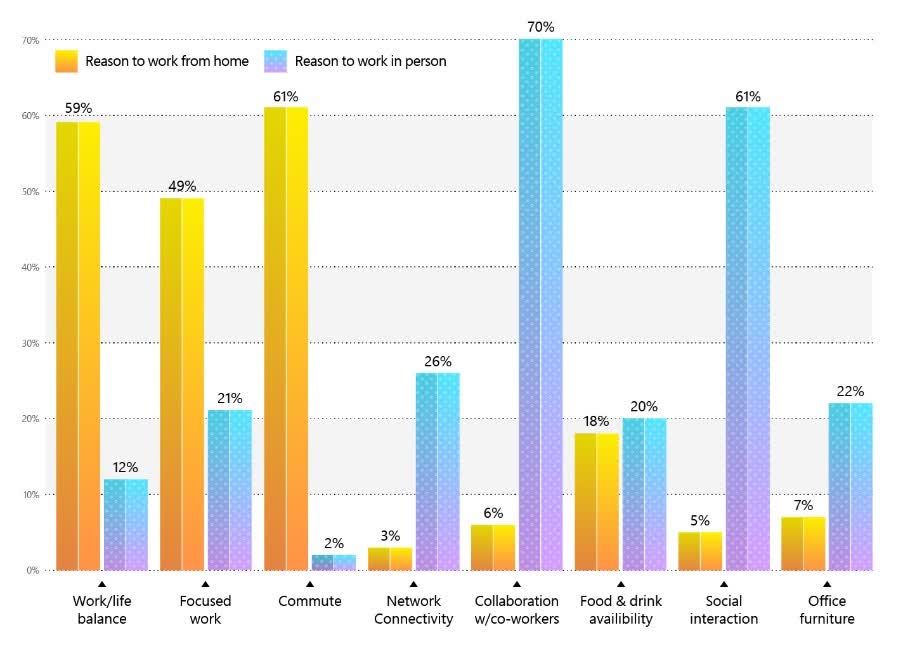Microsoft study claims working from home threatens productivity and innovation
In brief: With remote work now the norm for and then many people, and a full-time return to the part looking further abroad than ever, does working from abode make people better employees? According to a recently published study past Microsoft, no, it doesn't. It actually results in less communication and collaboration betwixt teams, which could impact productivity and innovation.
Microsoft's peer-reviewed written report, published in the journal Nature Human Behaviour, covers 61,000 employees. It looked at anonymized information of their working patterns starting Dec 2022—before the lockdowns—up to June 2022.
The researchers concluded that the shift to company-wide remote piece of work caused the collaboration network to get more siloed, with workers less likely to communicate with those in other departments. Microsoft said collaboration time employees spent with other groups dropped by about 25% compared to pre-pandemic levels.
"Without intervention, the effects we discovered have the potential to impact workers' ability to larn and share new information across groups, and as a result, touch productivity and innovation," Microsoft wrote in an accompanying post.

Additionally, there was an increment in asynchronous communication, including email, SMS or corporate chat, calendars, and instant messages. Synchronous communication—the likes of phone and video calls and contiguous meetings—declined.
"Based on previous research, we believe that the shift to less 'rich' communication media may accept made it more difficult for workers to convey and procedure complex information," the Microsoft researchers wrote.
While some say people practise less work at home, the study showed that the average number of hours an employee worked in a week increased. Not surprisingly, the book of emails and instant messages they sent and received also increased, but the number of hours spent in meetings declined. A different study from last twelvemonth institute that while people were spending fewer hours in meetings, the frequency of shorter meetings had gone up.
Microsoft believes adopting a hybrid work system would only mitigate the problem of reduced productivity and innovation rather than address it.
Summarizing, the researchers wrote, "In calorie-free of these findings, companies should be thoughtful nigh if and how they choose to adopt long-term work-from-home policies."
Conversely, Microsoft employees told a separate study that their feelings of inclusion and back up from managers are at all-fourth dimension highs, and they feel no less productive than before. Simply non everyone establish remote piece of work enabled the best work-life residue, fourth dimension to focus, and time to interact.

The results came on the same day that Microsoft gave up on trying to predict when information technology would fully reopen its US offices. The company had originally given October four as a date, but, as with so many things, the Covid-19 Delta variant every bit thrown a spanner in the works.
Apple has too been forced to reassess its plans for a worker render. It originally wanted the majority of its workforce to come up back in for three days per week this month, but that was changed to October at the primeval. The engagement was recently pushed once more until January 2022, though it could be even afterwards as many staff accept expressed concerns over returning to the office too early on.
Source: https://www.techspot.com/news/91210-microsoft-study-claims-working-home-threatens-productivity-innovation.html
Posted by: rileylecrid.blogspot.com


0 Response to "Microsoft study claims working from home threatens productivity and innovation"
Post a Comment